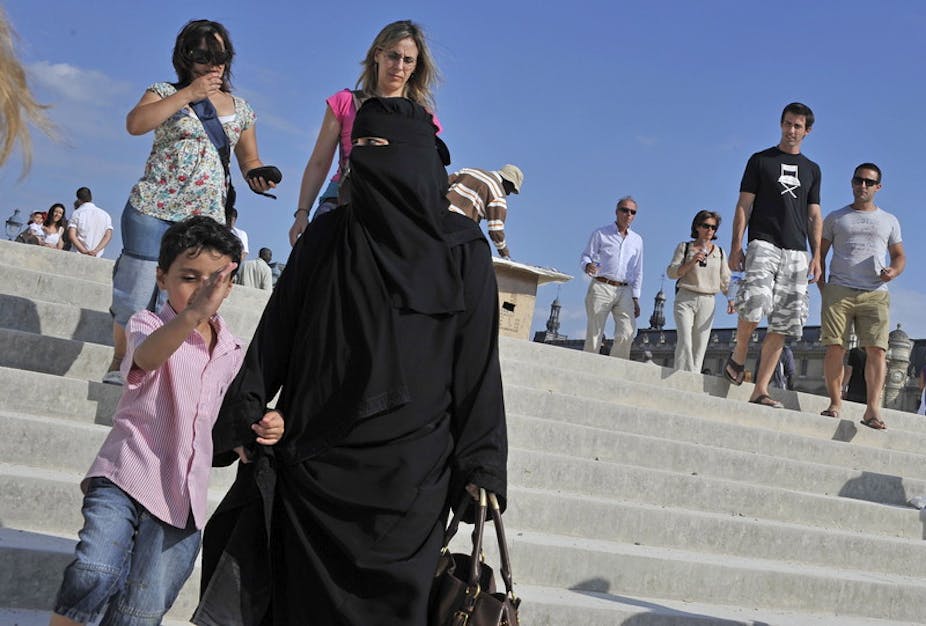On 1 July, the European Court of Human Rights upheld the French legislation banning the face veil in public space. As Frederick Cowell has observed, this will keep the French government from criticising the Strasbourg court at a time when its judicial authority is under serious pressure.
But this institutional gain should not obscure the social costs of the verdict. Muslim women who want to wear the face veil are going to have a harder time in Europe. This can only have a detrimental effect on social “cohesion”; it is bad news for everyone in Europe.
Exposed
The verdict condones legislation which bans face veiling. If you are a woman who wants to veil yourself in this way, the criminalisation of your chosen attire makes your everyday life very difficult.
Every time you step out in public, you risk being fined. Any activity which takes you out of your house becomes a hazard, a potential cause for being humiliated, a journey which may go astray.
You try to avoid going shopping, because you fear being stopped by the police. You do not dare fetching your children at school, because you might never get to the school gate in time – or, if you do, your children may witness you being abused on the way home. You calculate the risks of being caught every time you step out of your house. Imagine that.
Some may think the solution to this problem is just to stop wearing the veil. This is not how it feels for the women who choose to veil themselves, something most of us regard as a drastic and bewildering step.
Research by the Open Society Foundations based on interviews conducted in France found women wore the veil for religious reasons, because it felt right to them in a particular moment in time, at this particular stage of their spiritual journey. No one had coerced them to take this step. They regarded it as the outcome of their personal decision. They did not impose it on anyone else.
The Strasbourg Court recognised that the applicant in the SAS versus France case was an autonomous woman, who had decided to take up the veil of her own free will. In stark contrast to previous decisions, the court thankfully avoided any argument that the veil was a symbol of gender oppression.
It also rejected the French government’s argument that the ban was necessary for security reasons: the applicant specifically said she was willing to take off her veil for example for identity checks. In order to justify the interference with the way the applicant wished to conduct her life, the court relied on a concept until then unknown in the Strasbourg case law: the requirements of “vivre ensemble”, or “living together”.
Living together
This unprecedented justification is highly ironic: in the name of “living together”, the court condoned a measure which makes it a hazard for Muslim women who choose to wear the face veil to go out at all, thereby isolating them in their homes.
Reading the judgement, one might get the impression that entering the public sphere means participating in a sort of big dance, where everyone joins in and talks to each other in equal terms and with equal enthusiasm. This is not how public space works in practice. All too often, we assume that a veil makes it impossible for us to interact with the woman who wears it, and that she would not talk to us. For some reason, we seem unable to just let veiled Muslim women be.
The court recognised that the French legislation was adopted after a parliamentary debate hardly devoid of Islamophobic remarks. Despite the poor quality of this debate, the court did not restrict France’s “margin of appreciation” (or “margin for discrimination”, as one commentator called it).
The judgement carries special weight because it emanates from the Grand Chamber, and it is almost certain to open the door to similar legislative bans in European countries which have so far successfully resisted the adoption of these oppressive and counter-productive measures.
Criminalising a way of presenting oneself and of living an everyday life is no way to improve social relations among Europe’s diverse population. We all need to learn to live with difference – that is the true meaning of “living together”.

